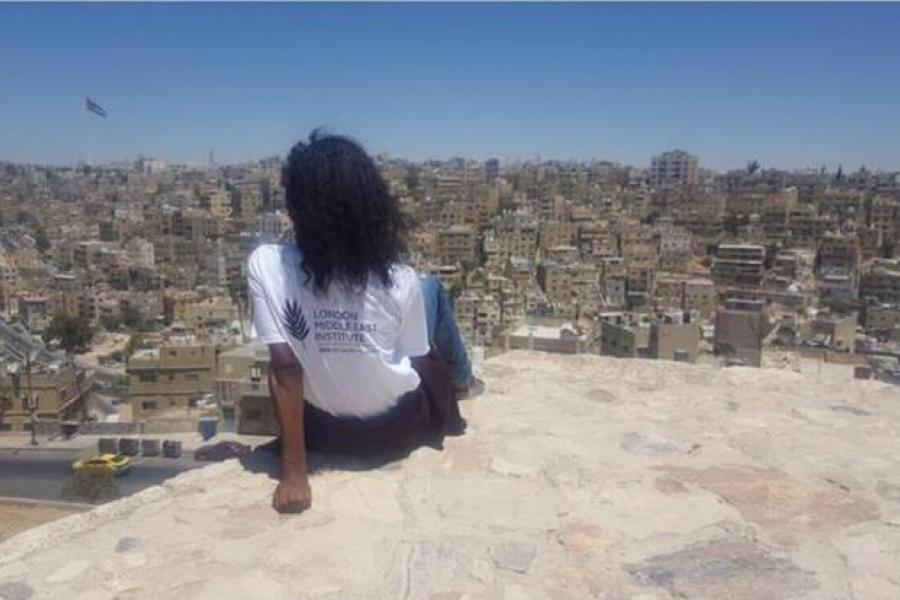More hurdles for EU citizens living through this cost of living emergency
We are seeing the largest fall in living standards since records began in 1956 in the UK. This government’s announcement last week of a pay cut budget for most of us leaves a lot to be desired.
While 90% of people on Universal Credit cannot afford life’s essentials, and millions are turning to food banks for support, EU citizens who fall on hardship have even more hoops to jump through to make it through difficult financial times.
Every month, 3,500 EU citizens are refused welfare support because they fail the “right to reside” test enforced by the DWP when assessing someone’s eligibility for Universal Credit. You’d think this right to reside is exactly that - proving you have an immigration status in the UK. Well, if only it was that simple - for 2.2m citizens with pre-settled status, it is not.
The easiest way for someone with pre-settled status to prove their “right to reside” is to show they qualify as a worker. For those of us who don’t have 9-5 jobs and are employed in the gig economy, proving one’s work to faceless DWP decision makers is more and more difficult.
Those pre-settled status holders who are unable to prove their “right to reside” are then treated in the same way as those who have the “No Recourse to Public Funds” (NRPF) condition attached to their immigration status. The think tank IPPR estimates there are 1.3 million people with NRPF, and many campaign groups such as JustFair, Praxis and Project 17 are working hard to end this unjust policy.
Who falls through the ‘right to reside’ net?

Take the example of Marian - he moved to the UK in 2019 and helped out in this friend’s restaurant. He had a stable income until the restaurant had to shut down because of the Covid-19 pandemic. He quickly went through his savings throughout the pandemic, didn’t sign up at the Job Centre, as he wanted to provide for himself and didn’t want to rely on anyone else. He got himself set up as soon as he could as a self-employed driver for a ride-sharing company, but hours are scarce and his pay is a pittance.
When Marian went to ask for welfare support from DWP, he was told he doesn’t qualify as a worker, as he hasn’t earned enough money in the last three months. He’s refused Universal Credit because he fails the “habitual residence test”.
Marian has lived in the UK and has barely seen his parents during the last few years - he doesn’t understand how he could be deemed as not being resident here. He was granted pre-settled status under the EU Settlement Scheme, but because he hasn’t yet had 5 years of continuous residency, he can’t apply for indefinite leave to remain (settled status) just yet.
He also knows he hasn’t earned enough money - that’s why he’s asking for support, to cover his rising rent, bills, food, and fuel for the vehicle that’s crucial to his livelihood, while he gets back on his feet and gets more work.
Marian’s rights in the UK are enshrined in the EU/UK Withdrawal Agreement. So how can a citizen like Marian rely on an international treaty to prove his rights to a welfare decision maker?
The only people Marian speaks to from the DWP are on the other end of a phone, and at his local job centre. Decisions are made based on Marian’s entries in his online Journal, a system that is wildly confusing and lacks transparency.
Even when the law might be on your side, it’s almost impossible to prove it
There are legal arguments that someone who is in Marian’s situation can rely on. Our friends at the EU Rights & Brexit Hub are experts who provide toolkits and skeleton arguments for advisers to use to make a case for EU citizens with pre-settled status. Similarly, CPAG have an excellent helpline for advisers.
In practice, Marian needs a welfare adviser who can help him formulate a mandatory reconsideration request, and then potentially a welfare solicitor who can submit a First-tier Tribunal appeal against the DWP’s decision.
The network of law centres around the country is stretched beyond capacity, with many advice services being overwhelmed and under-resourced. You only have to glance at the law centres’ map to clearly see advice deserts.

It can take months for someone to get the support they need, while people are expected to challenge refusals within very strict deadlines (usually a month).
Specialist advice for EU citizens is scarce, creating a widening gap in accessing justice and little to no recourse for support in lodging substantive appeals.
With guidance documents from various government departments contradicting one another, DWP decisions are often inaccurate. This is compounded by a lack of transparency and accountability in decision making - people often don’t have access to their journals or to arguments on why they have been refused, and every time they ring up they speak to a different person who gives them conflicting information.
The solution can be very simple
In England, there were 5m people on Universal Credit in February 2023. The extensive government resource allocated to making decisions based on very complicated rules just doesn’t make sense - instead, this resource can go towards helping out the handful of people who fall on hard times: 3,500 people with pre-settled status every month, and people with no recourse to public funds.
Regardless of immigration status, at the end of the day, when DWP refuses to help someone, other statutory services have to pick up the case.
For families with children or vulnerable adults, when families fall into destitution, the overall cost for the government snowballs, with local councils already stretched to the maximum picking up the work.
For single adults, people are often experiencing homelessness, or mental ill health, with local authorities and the NHS being the only places to get support from.




